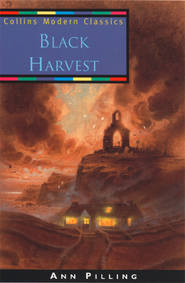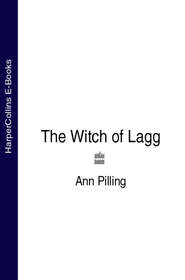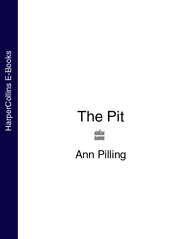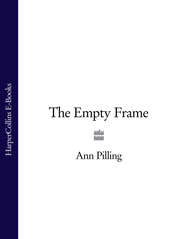По всем вопросам обращайтесь на: info@litportal.ru
(©) 2003-2024.
✖
The Beggar’s Curse
Настройки чтения
Размер шрифта
Высота строк
Поля
They followed their parents down the train. Prill soon lost sight of her mother, but there was no danger of losing Alison, her little sister. She hated the jolting carriages, the noise, and the big sweaty faces thrust up against her as people squeezed past. She howled solidly till Mrs Blakeman found a spare seat and sank down into it with a sigh of relief.
“I’ll take the kids up to Oliver,” Mr Blakeman said. “There might be a couple of spaces, you never know.”
Alison bawled louder as Prill disappeared, and the sight of that crumpled little face made Prill want to bawl too. Her mother had told her to look on the bright side about this holiday. Alison had been a good baby but she was going downhill fast, and now she could walk nothing and nobody was safe. She broke things, pulled things apart, and yelled for hours when she couldn’t get her own way. Grandma said she was getting herself ready for the Terrible Twos.
But Prill loved Alison. She was twelve and her sister was one, but they were friends. She’d much rather put up with a bit of howling and mess than be dumped in some lonely village all on their own for three weeks. Colin was OK, but Oliver. . .
There he was, installed in his corner seat, with his neatly labelled suitcase in the rack over his head, a small packet of sandwiches on his knees, and his nose deep in a book. “Hi, Oll,” Colin said cheerfully.
“Oh, hello. You made it then. Good job I kept these.” Across the aisle were two empty seats, one occupied by a yellow bobble hat, the other by an anorak.
“Thanks, Oliver,” Mr Blakeman said. “That was clever of you.”
“It wasn’t my idea,” the boy said coolly. “My mother did it. She knew you’d be late.”
“Well, you saved our bacon anyway. I had visions of us all standing up for three and a half hours. Now I’m going back to your mother,” Mr Blakeman told Colin and Prill. “I’ll pop back, but you know we get off at Crewe, don’t you?”
“Of course I do,” Oliver said quite irritably. “That’s where Molly’s picking us up.” And he pointedly turned the page of his book.
Mr Blakeman vanished. The brother and sister exchanged looks, then they both glanced across at Oliver. “He’s not improved much, has he?” Prill whispered. “He looks as weedy as ever. And why does he always dress up for an antarctic expedition? It’s not that cold.”
They hadn’t seen Oliver since last summer, but he was much the same; a bit taller perhaps, but still pale and droopy-looking and thin to the point of boniness. The glasses were new. Behind them his pale bulgy eyes gobbled up the print. They were large eyes, a curious washed-blue colour, with the hardest, coldest stare they had ever seen in anybody. “What are you reading, Oliver?” Colin said.
There was no answer. He simply held the book up so they could see the title. Cheese and Churches – Rural Traditions in Cheshire.
“Any good?”
“I don’t know yet. I’ve only just started. It’s my father’s.”
Uncle Stanley was a schoolteacher like Mr Blakeman, but the kind that specialised in being boring. Oliver’s school had long holidays, a whole month at Easter which his father usually filled with special projects. It was his own fault that his son was such a swot.
Cheese and Churches was obviously much more interesting than talking to the Blakemans, and Oliver clearly planned to read for the whole journey. To a normal person Colin might have said something like “Don’t speak, will you,” or “I’m used to being ignored.” But this was Oliver. He could be friendly when it suited him, even fun, now and again, but most of the time he was a loner.
It took a long time to get to Crewe. At every halt the train lost more and more time, and Dad’s idea of a fond farewell before they all split up faded gradually into nothing. The connecting train to Scotland would not be kept back, and the guard reckoned it was “a fair old walk” to the next platform.
So goodbyes were said hurriedly in the corridor as the train slowed down, and it was just as well. Prill was in a black depression about the whole thing, she wanted to go to Scotland with her parents, and Oliver seemed worse than ever. At least it had been their holiday, last summer, and he’d been a guest. But this Molly Bover was his father’s cousin, Oliver had been to Stang once before, and the Wrights had farmed in Cheshire for years and years. He’d be bound to make the most of it, parading his knowledge. He was such a little know-all.
Prill shut her ears to the last goodbye and turned her back on the final glimpse of her parents, rushing after a man with a trolley. After all the fuss of getting off, Crewe Station seemed strangely quiet and she stood alone, feeling like a little lost boat washed up on a sunless beach.
Then a voice said, “Oliver, hello dear. I was late, as usual. But I’m here now. And this must be Prill? And you’re Colin? I’m Molly Bover.” An irate railway official was coming towards them with Jessie on the end of a lead. He thrust it irritably into Colin’s hand. “Here, take it will you. I’ve had enough of this dog. It’s been a perishing nuisance. Noisy devil.”
Jessie was overjoyed to be free. She barked loudly and leaped up at the three children, wagging her tail and slobbering.
“Steady on,” said Molly Bover, taking a step back. She was a large lady but Jessie was almost knocking her over. “Gorgeous dog, but whose is it? And where’s that man gone? Surely someone’s looking for it?”
“It’s ours,” said Colin.
“Oh, but – yours dear? This?”
“Well, yes; she wasn’t allowed to go to Scotland, you see, and you said. . .”
Molly Bover’s round moon face clouded slightly. She said nothing for a minute, but took refuge in the three young faces. She liked children. The two Blakemans looked alike, freckled and gingery with curly reddish hair and dark brown eyes. Prill was pretty, a good subject for a portrait. But Molly didn’t paint these days, she had to concentrate on making her pots, to bring a bit of money in. Next to his cousins poor Oliver looked a real shrimp. Colin was a head taller, broad-shouldered and powerful-looking. Oliver was pale-faced and spindly.
Molly thought he spent far too much on his own, shut away in that damp little flat with his mother always pumping pills into him. A week or so in the country would do him a power of good. . . Her reverie was shattered by a shaggy wet face being thrust under her nose, and by more mad barking. “Jessie, of course, yes, I do remember now. Only there are the poodles. . . Oh well, let’s sort that out when we get home. Come on.”
They followed her out of the station towards an old blue estate car, Oliver carrying his tidy little case, Prill hanging on to the dog, Colin gloomily lugging a trolley with their old trunk on it. He had that sinking feeling. Molly Bover had obviously forgotten about Jessie and the dog wasn’t used to other animals. She’d eat Poodle One for dinner and Poodle Two for tea. It wasn’t a very promising start.
CHAPTER TWO (#ulink_ae07a755-fe0f-55e1-9800-3b1a0cbf1ce8)
The minute the car door was opened all hell broke loose. Two toy poodles in the back hurled themselves against the battered dog guard in their effort to get at Jessie. She barked back, leaped on the nearest seat, and pushed her long nose through the bars.
“Jessie!” Colin yelled, yanking her outside. He could see the guard collapsing and the whole thing ending in a bloody free-for-all.
“Get in, get in, will you,” Molly said, vaguely alarmed. “I’ll put the cases in the back. Can she sit with you, do you think? It might be easier.”
Oliver settled himself by a window and the others clambered in after him. Jessie scrambled up on to the three pairs of knees and squirmed round trying to get herself comfortable. She liked being with people.
Oliver was almost suffocated. It had taken him all last summer to get used to this dog, and she’d obviously gone backwards in the last six months. The Blakemans just didn’t discipline her. And he didn’t like having the tail end either. He gave Jessie a sly shove and she moved over slightly, making herself into a miserable russet heap on Prill’s lap.
Colin thought Molly Bover was a bit odd-looking. Dad had told them she was over seventy, but in spite of the thick white hair straggling out of its untidy bun, she had a young face. She wore a dusty black cape with a hood lined in bright red. The hem was falling down and pinned up with a few safety pins. The artistic effect was further ruined by some mud-spattered wellington boots.
Uncle Stanley had warned them to expect bad weather up here, he’d advised rubber shoes, hats, gloves and hot water bottles. Oliver, who always wore three times as many clothes as anyone else, was obviously well-prepared.
The two black poodles were called Potty and Dotty and they yapped solidly all the way home. Colin and Prill grinned when they heard the names. It was hard to picture this sensible, no-nonsense Molly Bover yelling “Potty! Dotty!” down the village street. It was a long drive from Crewe across the flat Cheshire plain. The road threaded its way across a patchwork of small fields and went through villages of rather dreary houses. Now and then they saw a thatched cottage painted white, criss-crossed with old black timbers.
“Magpie architecture,” Oliver said importantly. “It’s in my book. They built the houses like that to make them more stable. The ground’s not always too firm, round here.”
Prill scowled at Colin. He was off. Why, oh why, did Grandma’s friend have to be in hospital now, just when the holidays started? She’d forgotten how irritating Oliver could be.
They kept seeing signs to Stang but there was no sign of a village. The car rattled down narrower and narrower lanes, then dived under a bridge. “There’s a canal above our heads,” Molly explained, slowing down so they could see properly. “It leaks a bit. When I was a child I used to stand here and imagine the whole thing collapsing. Anyway, we’d better get on. Not much further now.”
“But where is Stang?” said Prill. They’d emerged from the dripping bridge on to a perfectly flat piece of road. “It’s miles away, surely?”
“Wrong,” Molly answered mysteriously. “We’re nearly there. It’s in a valley, you see. You can never see Stang till you’re right on top of it. I expect your dad’s told you the old rhyme, Oliver?
‘The last man into Stang at night
Pulls down the lid and makes all hatches tight.’
He was always quoting that.”
Prill felt cold. It would be warmer down in the village, nicely tucked away in its little hollow. She was quite relieved that Stang wasn’t up on this plain where the wind could get at it, or near that gloomy canal. She stared through the window as Molly slowed down to let a tractor go by. Spring had hardly started here yet, though it was a very late Easter. The trees were only the faintest green. It was as if they were waiting for a warm spell, before hanging their flags out. For April the countryside was unusually quiet and still. Spring was well advanced at home, with trees in full blossom and birds busy everywhere. Round here, everything seemed to be still waiting.
Molly had switched her car engine off. A three-sided argument had developed between the tractor driver, a builder’s lorry, and a loud-mouthed youth on a red motorbike. “Sorry, folks,” she said cheerfully, opening her window. “A bit of local colour for you. That’s Tony Edge, our local Romeo.”
“A great big scrape,” the boy was bawling at the lorry driver. “Have to be resprayed that will.” Then they heard, “Come off it, mate, you did it on purpose. I know your sort.”
“Oh, he is ridiculous,” Molly muttered through her teeth. “As if the poor man meant to do it. Come on, Tony,” she shouted. “Move, will you. I’ve not got all day.” And she gave a sharp blast on the horn. At the sudden noise the young man jerked up his helmeted head and stared at the rusty old car ferociously. Colin was peering out of a side window, and their eyes met.











